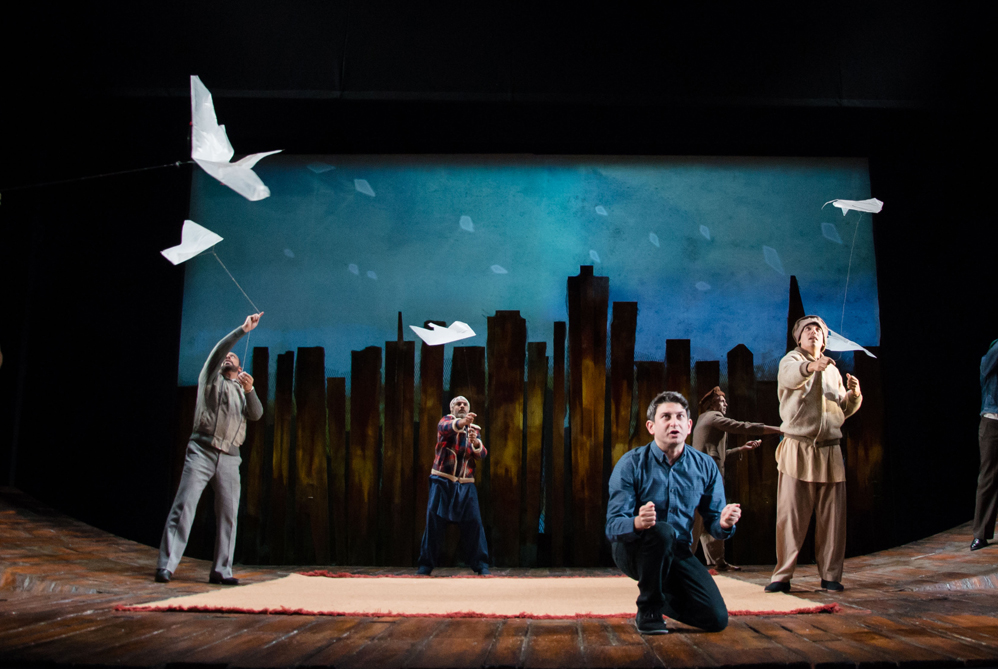
The Kite Runner has proved something of a cultural sensation. First a hugely successful novel by Khaled Hosseini, then a film, and of course the source of this very stage adaption. A story of childhood guilt and cultural relocation, we follow Amir as he recounts his life growing up in an affluent household in Afghanistan through to his move to San Francisco following the Soviet invasion.
This stage version boasts some commendable touches to convey a story with a great scope of both time and location. We’re treated to traditional Afghan music and instrumentation live on stage, which goes a long way to establishing the setting. The staging itself is minimal and makes great use of a lighting and descending partitions to communicate the environment effectively. It’s a less is more approach that delivers most effectively.
The play suffers from all the same problems as Hosseini’s novels: a reliance on contrivance to deliver the resolution, depictions of evil that ultimately become cartoonish, and an unerring urge to deliver a happy ending no matter what. As with the book, these problems never sufficiently undermine the main virtues of the piece, namely that it is informative and emotionally engaging.
And if the actors did not sell the piece, intelligent staging alone would not rescue the play. Thankfully the chops of the performers are in no doubt. Amir, man and boy, is played by David Ahmad – he and Jo Ben Ayad are put through their paces to convey adolescent roles but both are up to the task. As protagonist and narrator, Ahmad’s ability to connect with the audience is central. Emilio Doorgasingh is the other major figurehead of the piece as the father-son relationship between his Baba and Amir is one of the two key strands of the narrative. He’s an accomplished stage presence and a real asset to the performance.
The Kite Runner is a play with innumerable aspects to compliment: cast, music, set design. It’s an involving and at times dark story that seeks to make the world of pre-invasion Afghanistan and the subsequent turmoil relatable in human terms and it certainly succeeds. ★★★★★ Fenton Coulthurst at Cheltenham Everyman 1st November 2017

